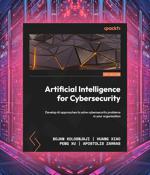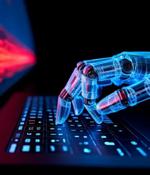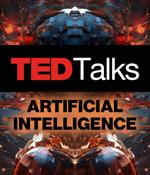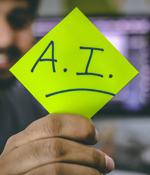Security News

Artificial Intelligence for Cybersecurity is a practical guide to how AI and machine learning are changing the way we defend digital systems. The book aims to explain how AI can help solve real...

Talking about AI: Definitions Artificial Intelligence (AI) — AI refers to the simulation of human intelligence in machines, enabling them to perform tasks that typically require human...

In nearly every segment of our lives, AI (artificial intelligence) now makes a significant impact: It can deliver better healthcare diagnoses and treatments; detect and reduce the risk of...

Google has announced that it's expanding its Vulnerability Rewards Program (VRP) to reward researchers for finding attack scenarios tailored to generative artificial intelligence (AI) systems in...

The world's tech giants are making assertive strides in AI. The TED Talks listed below explore how AI alters industries and revolutionizes the dynamics of our rapidly evolving world. In a talk from the cutting edge of technology, OpenAI cofounder Greg Brockman explores the underlying design principles of ChatGPT and demos some mind-blowing, unreleased plug-ins for the chatbot that sent shockwaves across the world.

Security experts from HackerOne and beyond weigh in on malicious prompt engineering and other attacks that could strike through LLMs. HackerOne, a security platform and hacker community forum, hosted a roundtable on Thursday, July 27, about the way generative artificial intelligence will change the practice of cybersecurity. How threat actors take advantage of generative AI. "We have to remember that systems like GPT models don't create new things - what they do is reorient stuff that already exists stuff it's already been trained on," said Klondike.

The number of cyberattacks directed at artificial intelligence continues to increase, and hackers are no longer planting malicious bugs within code - their techniques have become increasingly complex, allowing them to tamper with systems to compromise and "Weaponize" AI against the organizations leveraging it for their operations. There are four typical elements to consider when it comes to ML. The first is data sets: the data provided to a device or machine so it can function, review, and decide based on the information received.

A Tel Aviv, Israel-based artificial intelligence firm, with a mission to build trust in AI and protect AI from cyber threats, privacy issues, and safety incidents, has developed the opposite: an attack against facial recognition systems that can fool the algorithm into misinterpreting the image. "We decided to check how applicable our attack was against large-scale internet applications, and the attack worked surprisingly well on PimEyes."

As the technology continues to expand its role in our lives, an important question has emerged: what level of trust can-and should-we place in AI systems? With the rise of new technology and its subsequent regulations, the role of the CISO is expanding to ensure company compliance with regulations like GDPR and education of employees on personal data requirements to keep everyone safe.

Cambridge Quantum Computing announce the appointment of Prof. Stephen Clark as Head of Artificial Intelligence. Prior to DeepMind, Prof. Clark spent 10 years as a member of faculty at the University of Cambridge Department of Computer Science and Technology, where he was Reader in Natural Language Processing.